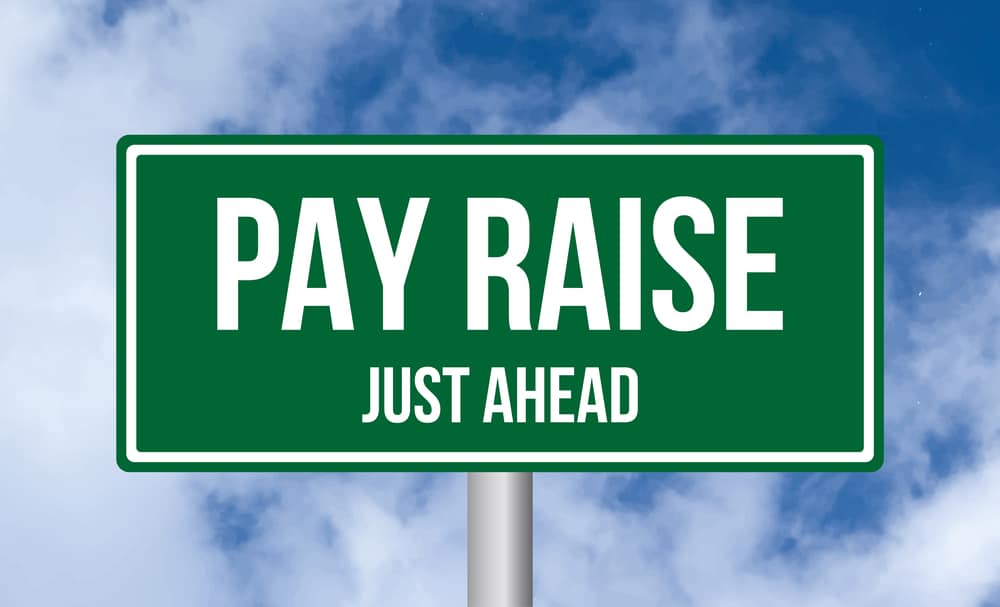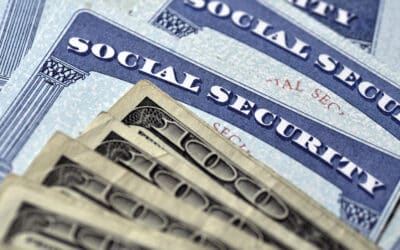“A good politician is almost as rare as an honest burglar,” once quipped H. L. Mencken. After the shenanigans around the latest congressional pay increase, America’s burglars should file a posthumous libel suit against Mencken for that disparaging comparison.
There is a pity party in Washington: You weren’t invited, but you’ll pay the bill.
The Constitution’s 27th Amendment, ratified in 1992, prohibits any law “varying the compensation for the services of the Senators and Representatives” from taking effect “until an election of representatives shall have intervened.” But the Constitution wasn’t permitted to impede the latest insider raid on the U.S. Treasury.
Thanks to a backroom deal, members of the House of Representatives can now claim automatic reimbursement of $258 a night for lodging expenses and $79 a day for meals in DC—even if they don’t spend a dime. But though House members can pocket up to $34,000 a year in additional tax dollars, it’s not a pay raise, because politicians are entitled to use false labels for everything they do.
Members of Congress are whining that they receive only $174,000 a year—more than triple the average U.S. salary and higher pay than 93 percent of what other Americans pocket. And it is a part-time job: The House of Representatives will be in session just 117 days this year. The New York Times reported, “Lawmakers, especially younger ones, have voiced concern about being able to afford to live in Washington, where they spend about a third of the year.” Few Americans get six-figure salaries for part-time gigs.
Admittedly, some new members of Congress are not too bright and maybe didn’t realize the job would require spending time in Washington. The poster boy for the pay raise was newly elected Rep. Maxwell Frost (D-FL), who complained he got turned down for an apartment in DC because of his “really bad” credit rating (in his own words). He wailed about his congressional gig: “This ain’t meant for people who don’t already have money.” But it wasn’t voters’ fault that Frost didn’t pay his bills. Actually, being a deadbeat is good job training for being a congressman and spending trillions of dollars the government doesn’t possess.
Rep. Alexandria Ocasio-Cortez (D-NY) moaned that “Congress structures itself to exclude and push out the few working-class people who do get elected.” Congressional salaries are far higher than average Americans’ pay in part to cover the extra cost of spending time in Washington. But House members wanted more.
The Origins of the Raise
After Republicans captured the House majority in November, the Democrat-controlled House Administration Committee rushed through a provision in December to boost members’ pay. The Select Committee on the Modernization of Congress recommended “additional reimbursement” to “increase the pool of people who could afford to serve on Capitol Hill,” The New York Times reported. The Times did not reveal which planet the Select Committee resided on.
The new windfall was labeled “reimbursements” and took effect thanks to a tweak in the Members’ Congressional Handbook. There was no debate or vote on the House floor; neither the Senate nor the president had a say in the matter. Former Rep. Mo Brooks (R-AL) denounced the “clandestine secrecy” of the process.
In a press conference in April, Rep. Hakeem Jeffries (D-NY), House Democratic leader, denied that any pay raise occurred: no, it was just “reimbursement.” Jeffries used the word “bipartisan” five times in one minute to sanctify the new measure. Inside the Beltway, “bipartisan” bestows instant absolution. House Republican leaders did not oppose the windfall.
If it is actually “reimbursement,” then why do congressmen get the money without showing receipts? Are we supposed to assume that legislators would go hungry unless they got another $79 a day? And if they aren’t competent at feeding themselves with their $174,000 salary for a part-time job, then maybe they shouldn’t be in charge of anything more complex than a toy battleship floating in a bathtub.
Politico calls the new regime “among the biggest changes to Congress’ financial operation in decades.” It describes the new system as “bringing Congress more in line with the American workforce.” But “the American workforce” wasn’t responsible for endless deficit spending that wrecked the value of the dollar that other Americans must use to pay for food and rent.
Caterwauling about low pay is a venerable tradition on Capitol Hill. In 1999, Senate Minority Leader Tom Daschle (D-SD) whined that “we don’t make anything near what journalists in this town make.” But congressmen were far better paid than most reporters. (Daschle exited the Senate to pocket millions of dollars a year hustling his former colleagues as a quasi-lobbyist.)
House Speaker Dennis Hastert (R-IL) declared in 1999 that congressmen need raises because “they need to have a life.” Apparently, receiving any salary less than $140,000 means that a person is legally dead. Unfortunately, the Internal Revenue Service does not accept this definition and still levies taxes on such zombies. Hastert was sentenced to prison in 2016 for financial fraud tied to his being a “serial child molester,” a federal judge declared.
Pay raises bring out the sordid side of the nation’s political elite. In 1987, congressional pay jumped from $$77,400 to $89,500 a year. After controversy erupted, the House took a voice vote which confirmed overwhelming opposition to permitting the pay raise to go through. Except that the vote occurred one day after the deadline to stop an automatic pay raise for legislators from taking effect. As the Los Angeles Times reported, “According to congressionally established procedures, such resolutions are effective only if they are passed within 30 days of pay raise recommendations by the President—and Wednesday was the 31st day.” One congressman said the procedure allowed members to “Vote No and Take the Dough.”
Did They Earn It?
How much do members of Congress legitimately earn? How much would you pay a lawyer who didn’t bother reading the contracts he signed on your behalf? Every year, Congress enacts multiple, thousand-page legislative blunderbusses without bothering to read the text. But congressmen have no liabilities for the monstrosities they create.
Anyone who watches a typical House oversight hearing—and sees the empty chairs and vacant stares of the congressmen—could be excused for scoffing. Many private employees would be fired if they routinely failed to show up at important meetings—or showed up so bewildered they had to have an aide continually whisper in their ear, apparently reminding them of their own name. Congress has done a pathetic job of overseeing the most abusive federal agencies, such as the EPA, HUD, EEOC, DEA, and FBI.
Congressmen rarely read the reports they command federal agencies to produce. Federal agencies routinely fail to submit reports demanded by Congress—or turn in reports 10 or 20 years after a deadline set in federal law—and suffer no retribution.
Many congressmen receive huge salary increases when they first arrive in Washington; more than 90 percent of members first elected in 1994 earned more money as congressmen than they had in their previous jobs. The larger the federal government becomes, the more powerful congressmen are perceived, and the more lackeys and lobbyists flatter them every hour of the working day. Naturally, politicians come to think of themselves as great saviors—and then demand to be paid as such, regardless of their batting averages.
Salaries are only part of the benefits that legislators pocket. Members of Congress award themselves far more lavish pensions than most Americans receive. They also benefit from a 72 percent subsidy on their health insurance costs. And they are often surrounded people desperate to do them favors—in return for double-crossing the citizenry.
Congress wouldn’t dare openly hike its own pay, because only 20 percent approve of how Congress is handling its job (78 percent disapprove). House members are like employees who are afraid to ask the boss for a raise—and then “compensate” themselves by pilfering the company’s cash register.
Congressional leadership is portraying the new windfall as practically a typo on W-2 forms. The up-to-$34,000-a-year benefit is part of a budget boost to “provide a ‘living wage,’” according to a summary from House Appropriations Committee Democrats. The new benefit system “does not require the submission of receipts to reduce burdens and address the potential security risks,” ruled the House’s chief administrative officer. Congress last year bankrolled hiring 87,000 new IRS agents and employees to audit Americans’ 1040 forms and shake more money out of their bank accounts. The new benefits are tax-free, so House members can pocket the pretax equivalent of $50,000 in extra income based solely on unverified claims.
The House report bewailed that “the personal benefits of winning a seat in Congress have…decreased.” But that was because Congress’ reckless deficit spending helped wreck the value of the dollar, which has fallen 40 percent since the last pay raise Congress gave itself in 2009. Do we give train captains raises after they wreck the train? Then why should we give Congressmen a reward for their economic mismanagement?
The report claimed that permitting reimbursement would “modernize” the pay system. Was the goal to have congressional compensation harmonize with the nationwide epidemic of shoplifting? The covert pay raise is akin to hiring a store clerk who then announces he is entitled to pilfer cash registers to get his lunch money.
Raises for Millionaires
Most members of Congress are millionaires. Most members are also landlords, and there is no limit to the rent they pocket on top of their salary. Nor is there any limit to the illicit profits they snare from insider stock trading—despite congressional leaders’ endless promises to end that crime spree.
The House report laments that “the decision to retire from Congress is sometimes driven by financial concerns.” It didn’t mention representatives rushing to get rich by selling out America. Almost 100 former members of Congress have registered as foreign agents. That notorious revolving door inspired a Politico headline: “Want to be a ‘foreign agent’? Serve in Congress first.”
The House report justified the compensation boost: “More candidates are willing to run for office if they see public service as an economically viable career.” But the Founding Fathers didn’t intend for citizens to make “viable careers” by endlessly seeking coercive power over other Americans.
I don’t want my name on an FBI terrorist watch list for inciting “contempt of Congress,” so here’s my compromise proposal. Raise congressional salaries to $250,000 a year, thereby ending the risk of legislators needing food stamps. Tie the higher salaries to strict liability for all wasted tax dollars. If congressmen end all the boondoggles, foreign and domestic, let them keep their higher pay. But hold members of Congress personally liable for any reckless, wasteful outlays (not to exceed $2 billion per congressmen). If legislators continue squandering vast swaths of tax dollars, then it may be time to revive a hallowed institution from colonial America—debtors’ prisons.
Actually, if congressmen are not going to respect the Constitution when it comes to their own paychecks, why should we expect them to give a damn about any of the constitutional rights created to protect Americans from Washington? The highest life achievement for many congressmen was persuading a plurality of voters that they were less reprehensible than opposing candidates. This is no qualification for managing a $7 trillion budget.
This article was originally featured at the Future of Freedom Foundation and is republished with permission.












